img034
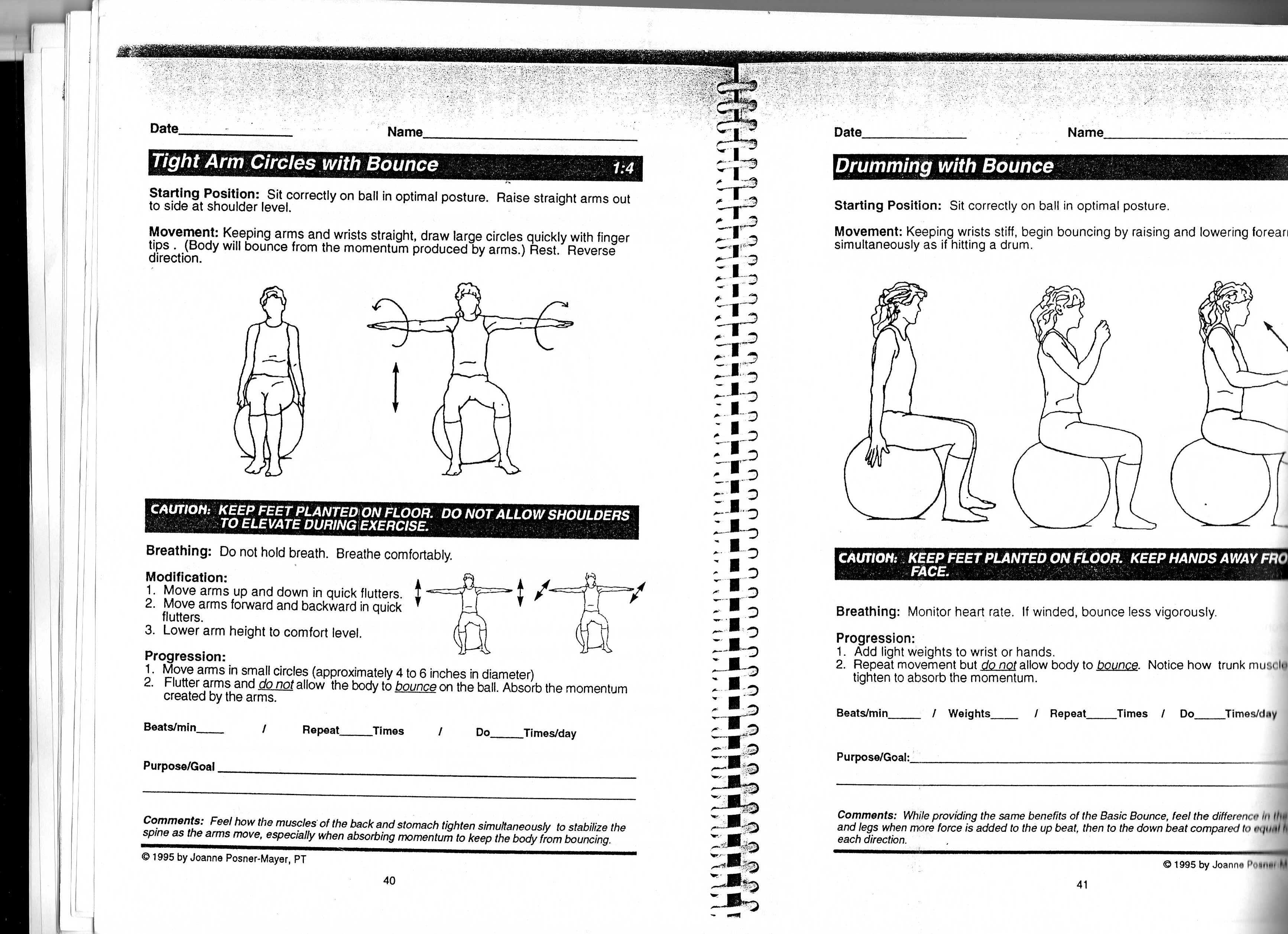
■ : .• 0
Datę
Na me
Tight Arm Circles with Bounce
Starting Position: Sit correctly on bali in optimal posturę. Raise straight arms out to side at shoulder level.
Movement: Keeping arms and wrists straight, draw large circles ąuickly with finger tips . (Body will bounce from the momentum produced by arms.) Rest. Reverse direction.
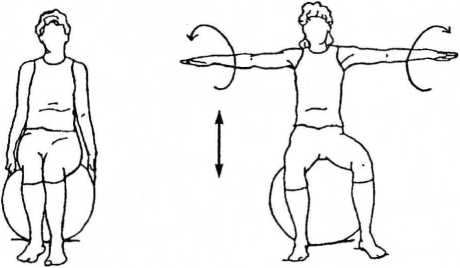
CAUTIOH: KEEP FEET PLANTED ON FLOOR. DO NOT ALLOW SHOULDERS TO ELEVATE DURING EXERCISE.
Breathing: Do not hołd breath. Breathe comfortably.
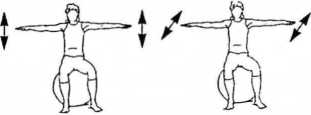
Modification:
1. Move arms up and down in ąuick flutters.
2. Move arms forward and backward in quick flutters.
3. Lower arm height to comfort level.
Progression:
1. Move arms in smali circles (approximately 4 to 6 inches in diameter)
2. Flutter arms and do not allow the body to bounce on the bali. Absorb the momentum created by the arms.
Beats/min_ / Repeat_Times / Do_Times/day
Purpose/Goal
Comments: Feel how the muscles of the back and stornach tighten simultaneously to stabilize the spine as the arms move, especially when absorbing momentum to keep the body from bouncing.
©1995 by Joannę Posner-Mayer, PT
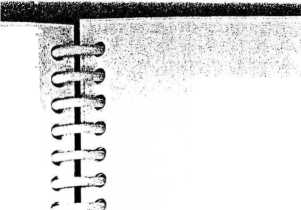

■
Dałe_ Name
Drumming with Bounce
Starting Position: Sit correctly on bali in optimal posturę.
Movement: Keeping wrists stiff, begin bouncing by raising and lowering foreari simultaneously as if hitting a drum.
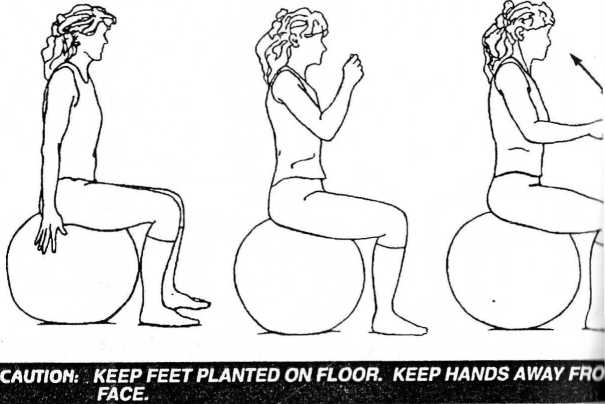
Breathing: Monitor heart ratę. If winded, bounce less vigorously. Progression:
1. Add light weights to wrist or hands.
2. Repeat movement but do not allow body to bounce. Notice how trunk musolo tighten to absorb the momentum.
Beats/min_ / Weights_ / Repeat_Times / Do_Times/d«y
Purpose/Goal:.
Comments: While providing the same benefits ot the Basic Bounce, feel the differencn in fM and iegs when morę force is added to the up beat, then to the down beat compared to rgmil h each direction.
© 1995 by Joann* Pomad
41
Wyszukiwarka
Podobne podstrony:
img035 Datę_ Name.Arm Swing with Bounce i:6 Starting Position: Sit correctly on ba
img043 Datę_ Name. March-Arm and Leg 1.20 Starting Position: Sit correctly on bali
img036 Datę_ Name Overhead Clap with Bounce 1:8 Starting Position: Sit correctly o
img36 Datę_ Name.Overhead Clap with Bounce 1:8 Startlng Position: Sit correctly on
img067 Datę. Name.Half Sit-Up with Obligues-Spinal Stability Starting Position: Sit correctly on bal
więcej podobnych podstron